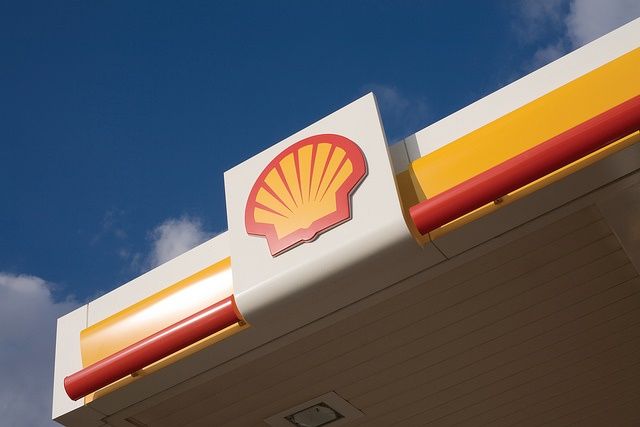The UK government yesterday announced a ‘windfall tax’ for oil and gas companies, but the ability for these firms to offset this by increasing fossil fuel extraction has been called a “big mistake” by commentators.
In February, Shell announced its highest quarterly profits – £4.7bn – in eight years, while UK energy prices rose by 54%, and inflation hit new highs.
Yesterday, amid continuing coverage of the Sue Gray ‘Partygate’ report, UK chancellor Rishi Sunak announced an Energy Profits Levy – a 25% surcharge on oil and gas profits, bringing the sector’s headline tax rate to 65%. The Treasury said this will raise around £5bn over the next year, which will go towards supporting people with the new cost of living measures also announced by the chancellor.
The levy, which went into effect on 26 May 2022, also includes a ‘super-deduction’ style investment allowance, which will allow companies to avoid the new tax if they “invest in UK extraction”, offsetting as much as 80% of new spending.
Many commentators have interpreted ‘UK extraction’ to mean fossil fuel extraction, which contradicts pacts made at COP26 in Glasgow, such as the ‘phase out’ of coal.
“While we support the windfall tax, the ability of the fossil fuel firms to offset their tax liability against investments in increased fossil fuel extraction, but not investment in renewables or the net-zero transition is a huge mistake,” said James Alexander, CEO of the UK Sustainable Investment and Finance Association and ESG Clarity Committee member.
“This sends exactly the wrong signals to the industry on the government’s commitment to the green transition and risks substantially increasing emissions and creating more stranded assets.”
Following the announcement of the levy, BP released a statement saying it would review its plans in light of the fact the tax would likely continue for several years. “Naturally, we will now need to look at the impact of both the new levy and the tax relief on our North Sea investment plans,” it said.
“[The government] will have to walk a fine line and find a way to reward and encourage sustainable, green investment by UK North Sea operators – from global and integrated oil majors to smaller players alongside UK focused independent operators,” Drew Stevenson, PwC UK’s energy, utilities and resources leader of industry commented.
“The industry would undoubtedly welcome any future plans that include ring fencing certain investments such as those poured into low-carbon energy projects.”
Will anything change?
However, some people are less worried oil and gas firms will be jumping to increase extraction activity for the chance of tax relief.
“Despite the attractive tax breaks for investment, it is unlikely to meaningfully incentivise a change in attitude towards investing in UK energy,” said Jamie Maddock, energy analyst at Quilter Cheviot.
“These companies are already feeling pressure from shareholders to continue with the transition to a cleaner world regardless of the tax environment of the day and they are beginning to see their role in a net-zero world more clearly by the day. We would expect the level of investment to remain consistent even after [yesterday’s] announcements.”
Even without pressure to continue investing in a green transition, the ‘windfall tax’ is easily absorbed by the companies as profits continue to rise. “A chunk of profit may still be scooped from the oil and gas majors but the levy will still represent just the cream on the top of fat volumes of cash being generated by energy giants due to the higher price of oil,” said Susannah Streeter, senior investment and markets analyst at Hargreaves Lansdown.
So the levy may well cause little to change, while energy prices continue to rise. Long-term solutions and forward-looking plans for how the £5bn raised will help ease the cost of living crisis, such as plans to improve home insulation and energy efficiency, could have been more effective, commentators concluded.
Alexander said: “The proceeds of a windfall tax would be far better spent on making the country’s houses more energy efficient, therefore tackling climate change and the cost of living crisis at the same time.”








